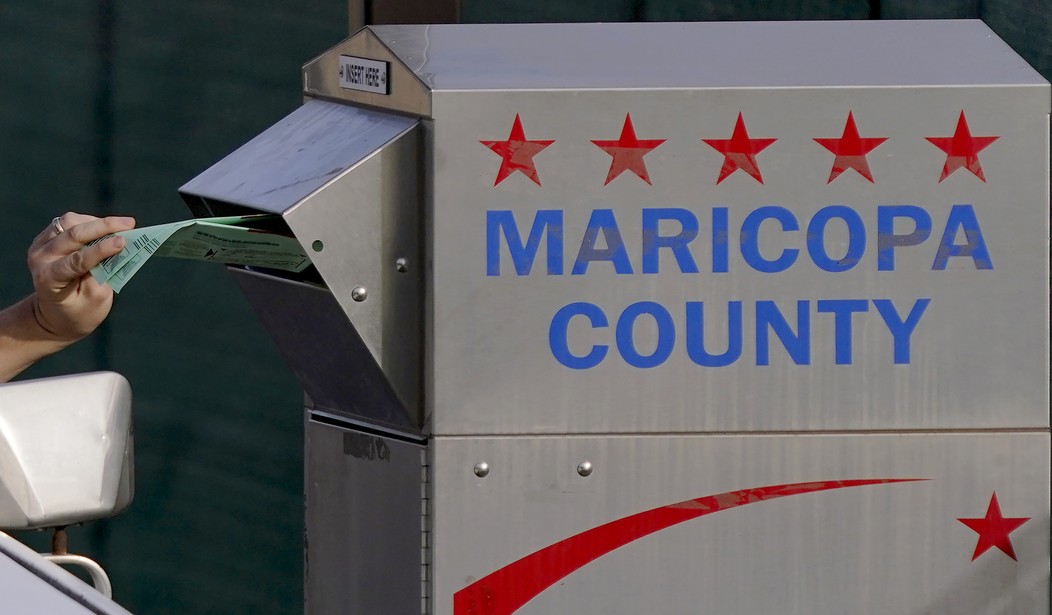A Trump Administration appointment, which was not a cabinet-level one, has caught the attention of powerful forces that would like to bury the 2020 election results, starting with the New York Times.
Under the leftist-narrative-reinforcing headline, “Trump Empowers Election Deniers, Still Fixated on 2020 Grievances,” the Times just this week attempted to frame the news that the president has appointed Heather Honey as deputy assistant secretary for election integrity at the Department of Homeland Security (DHS). Honey assumed her new role with the administration in August, so it’s curious that it’s taken this long for the Times to pick up on it, though we are now a year out from the 2026 midterms.
Honey is described by left-leaning media as “a prominent election activist whose research questioned the 2020 election results;” “a prominent figure in the conservative election integrity movement;” and “a leading election conspiracy theorist.”
After the 2020 election, Honey gained public attention when she revealed the results of her analyses of Pennsylvania voting patterns. She discovered that there were more Pennsylvania votes than Pennsylvania voters in that election.
With all counties reporting, PA ended its 2020 election with 121,240 MORE votes than voters. Certifying an election this way is illegal.
— Liz Harrington (@realLizUSA) August 27, 2025
Heather Honey’s work has never been refuted. She’s uncovered enough evidence to overturn the fraudulent 2020 election in multiple states. https://t.co/3udeFIlgC3 pic.twitter.com/bAB71Rdwce
Another leftist news outlet, SpotlightPA, reported that Honey’s firm, Haystack Investigations, also served as a subcontractor to another firm called Cyber Ninjas in its work to audit the Arizona elections. The Arizona state Senate hired that firm to audit the 2020 election results in Maricopa County.
Universally, the legacy media and Democrat officials—both in the states and in Washington, D.C.—have panned Honey’s contentions about the 2020 elections, labeling them conspiracy theories and attacking her methodology for analysis. In just about every story on the 2020 elections, the left offered very little in terms of specifics when claiming some of the most comprehensive conservative analysis was flawed. But the media always accepted these leftist claims on face value.
For her part, Honey has pushed back, not only standing by her work but, in at least one case, suing a news outlet called Votebeat for defamation.
In her new role at DHS, she will work in DHS’s Office of Strategy, Policy and Plans, where she will focus on election integrity matters. This position didn’t exist under President Biden. I wonder why. But the good news is that Biden had his priorities straight and was totally committed to DEI at DHS. He even made sure the agency had an “equity action plan.”
What has the Times and other legacy media nervous is that Trump appears to be building an election-integrity infrastructure going into the 2026 midterms that could be hard to undo if the Democrats regain power.
Heather Honey spent years pushing election lies. Now Trump’s made her deputy assistant secretary for “election integrity.”
— DASS (@DemsOfState) October 22, 2025
Trump is putting election deniers in charge of our democracy.https://t.co/hQhIVQEZzj
Very recently, Scott Leiendecker, a former Republican elections director in St. Louis who founded Liberty Vote, bought Dominion Voting Systems, which was one of the country’s largest election tech firms. Dominion was embroiled in numerous election-related controversies tied to the 2020 election. Those controversies centered on allegations of election-rigging. The Dominion acquisition alone has created an improved sense of comfort for conservatives looking ahead to the 2026 midterms and the 2028 presidential election.
Heather Honey has been commonly referred to as an “election denial activist” in the Times and elsewhere. With her and others seeking to clean up America’s election systems, how soon until these accusers themselves become “election deniers"?
The Times’ account of a call from September in which “election officials from nearly all 50 states” gathered with Honey was revealing. Relying on its trademark anonymous sources, the Times reported that at the end of the call many “left alarmed.”
“Rather than offering assurances that the federal government’s election protection programs would continue uninterrupted, the new official, Heather Honey, instead used portions of the meeting to echo rhetoric that has infused the right-wing election activist movement that emerged since President Trump falsely claimed that his 2020 defeat was the result of widespread fraud,” the Times reported.
What was that rhetoric?
Honey alleged that DHS’s own cybersecurity experts who were “tasked with combating misinformation about elections had ‘strayed from their mission.’”
In other words, people at DHS who were in charge of the technological security of elections had been instead required to shift their focus to work as propagandists countering conservative allegations.
So, after Honey complained about this, she is the one who the Times says is the problem.
The Times added that Honey “repeatedly mentioned a report often cited by election conspiracists to support their claims that voting machines were rigged to favor Democrats.”
The common thread for the Times, the legacy media, and Honey’s other critics is simply that she won’t let go of 2020 and is forcing them to defend something they’ve never truly had to defend with specifics in the first place. Stay tuned on this one.










